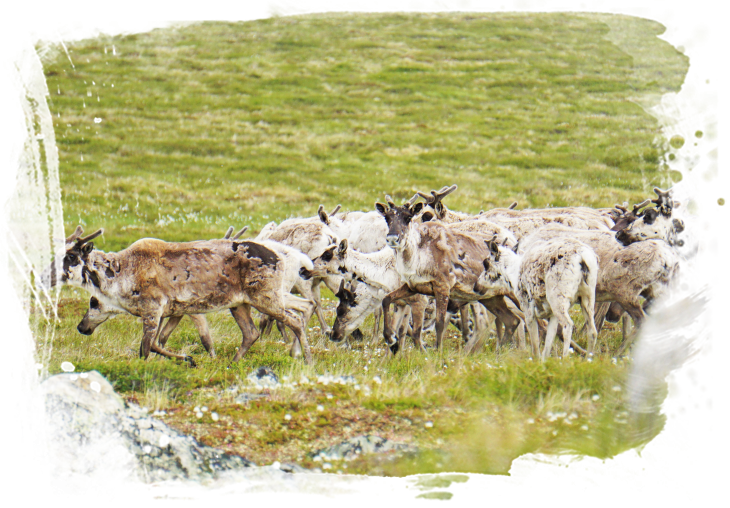Aboriginal, northern and other research organizations engaged in northern research
Arctic Institute at the University of Calgary
 Based at the University of Calgary since 1976, the mandate of the Arctic Institute is to advance the study of the North American and circumpolar Arctic through the natural and social sciences, the arts and humanities and to acquire, preserve and disseminate information on physical, environmental and social conditions in the North.
Based at the University of Calgary since 1976, the mandate of the Arctic Institute is to advance the study of the North American and circumpolar Arctic through the natural and social sciences, the arts and humanities and to acquire, preserve and disseminate information on physical, environmental and social conditions in the North.
See http://arctic.ucalgary.ca/
Arctic Institute of Community Based Research
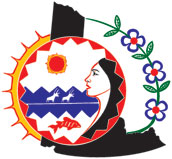 Located in Whitehorse Yukon the mission of AICBR is to facilitate and promote community-based, Northern-led health research activities aimed at improving the health of Indigenous and non-Indigenous Northerners.
Located in Whitehorse Yukon the mission of AICBR is to facilitate and promote community-based, Northern-led health research activities aimed at improving the health of Indigenous and non-Indigenous Northerners.
Aurora Research Institute
 ARI provides its services through three research offices in Inuvik, Fort Smith, and Yellowknife. ARI is the research division of Aurora College, with a mandate to improve the quality of life for NWT residents by applying scientific, technological and indigenous knowledge to solve northern problems and advance social and economic goals. The Institute researches and coordinates research in the NWT in accordance with the NWT Scientists Act.
ARI provides its services through three research offices in Inuvik, Fort Smith, and Yellowknife. ARI is the research division of Aurora College, with a mandate to improve the quality of life for NWT residents by applying scientific, technological and indigenous knowledge to solve northern problems and advance social and economic goals. The Institute researches and coordinates research in the NWT in accordance with the NWT Scientists Act.
CIET Canada
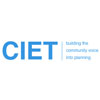 CIET is a non-profit, non-governmental organization based in New York, with a presence at McGill University in Montreal with the purpose of engaging in epidemiological research and training to make public services work better, reach more who need them, and be more accountable. As researchers and research trainers, CIET builds partnerships by socializing evidence for participatory action. More recently, in South Africa and Europe, CIET has come to stand for “Community Information, Empowerment and Transparency.
CIET is a non-profit, non-governmental organization based in New York, with a presence at McGill University in Montreal with the purpose of engaging in epidemiological research and training to make public services work better, reach more who need them, and be more accountable. As researchers and research trainers, CIET builds partnerships by socializing evidence for participatory action. More recently, in South Africa and Europe, CIET has come to stand for “Community Information, Empowerment and Transparency.
Gwich’in Social & Cultural Institute
 Located in Tsiigehtchic, Fort McPherson and Yellowknife, the GSCI is a non-profit society with the objective to conduct research in the areas of culture, language and traditional knowledgeof the Gwich’in people so that this body of knowledge will be recorded and available for future generations, and the development of programs appropriate for Gwich'in needs. GSCI works with the four communities of Aklavik, Fort McPherson, Inuvik, and Tsiigehtchic which all fall within the Gwich'in Settlement Area (GSA), established by the land claim agreement. The Institute also carries out heritage research in the Yukon in traditionally used areas described as the Primary and Secondary Use Areas in the claim.
Located in Tsiigehtchic, Fort McPherson and Yellowknife, the GSCI is a non-profit society with the objective to conduct research in the areas of culture, language and traditional knowledgeof the Gwich’in people so that this body of knowledge will be recorded and available for future generations, and the development of programs appropriate for Gwich'in needs. GSCI works with the four communities of Aklavik, Fort McPherson, Inuvik, and Tsiigehtchic which all fall within the Gwich'in Settlement Area (GSA), established by the land claim agreement. The Institute also carries out heritage research in the Yukon in traditionally used areas described as the Primary and Secondary Use Areas in the claim.
ICHR: Institute of Circumpolar Health Research
 Located in Yellowknife, NWT the Institute for Circumpolar Health Research (ICHR) is an independent research organization devoted to health research relevant to the circumpolar regions and their people.
Located in Yellowknife, NWT the Institute for Circumpolar Health Research (ICHR) is an independent research organization devoted to health research relevant to the circumpolar regions and their people.
Cultural Resources
IPINCH: Intellectual Property Issues in Cultural Heritage
 Based at Simon Fraser University in Burnaby, British Columbia, the Intellectual Property Issues in Cultural Heritage (IPinCH) research project is an international collaboration of archaeologists, Indigenous organizations, lawyers, anthropologists, ethicists, policy makers, and others, working to explore and facilitate fair and equitable exchanges of knowledge relating to heritage. This project is concerned with issues of the nature of knowledge and rights based on culture—how these are defined and used, who has control and access, and especially how fair and appropriate use and access can be achieved to the benefit of all stakeholders in the past.
Based at Simon Fraser University in Burnaby, British Columbia, the Intellectual Property Issues in Cultural Heritage (IPinCH) research project is an international collaboration of archaeologists, Indigenous organizations, lawyers, anthropologists, ethicists, policy makers, and others, working to explore and facilitate fair and equitable exchanges of knowledge relating to heritage. This project is concerned with issues of the nature of knowledge and rights based on culture—how these are defined and used, who has control and access, and especially how fair and appropriate use and access can be achieved to the benefit of all stakeholders in the past.
NAHO: National Aboriginal Health Organization
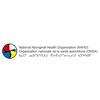 The National Aboriginal Health Organization (NAHO) was an Aboriginal-designed and -controlled body committed to influencing and advancing the health and well-being of Aboriginal Peoples by carrying out knowledge-based strategies. After 12 years of operation, NAHO does not exist anymore as the organization’s funding was cut in the 2012 federal budget and its office closed on June 29, 2012. Their website will remain available until Dec 22, 2017.
The National Aboriginal Health Organization (NAHO) was an Aboriginal-designed and -controlled body committed to influencing and advancing the health and well-being of Aboriginal Peoples by carrying out knowledge-based strategies. After 12 years of operation, NAHO does not exist anymore as the organization’s funding was cut in the 2012 federal budget and its office closed on June 29, 2012. Their website will remain available until Dec 22, 2017.
Cultural Survival International
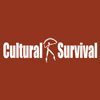 Located in Cambridge Massachusetts USA since 1972, Cultural Survival advocates for Indigenous Peoples rights and supports Indigenous communities’ self-determination, cultures and political resilience, since 1972.
Located in Cambridge Massachusetts USA since 1972, Cultural Survival advocates for Indigenous Peoples rights and supports Indigenous communities’ self-determination, cultures and political resilience, since 1972.
See www.cs.org
UNU- IAS Institute of Advanced Studies Traditional Knowledge Initiative
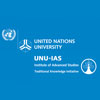 Located at Charles Darwin University at Darwin, NT Australia, the UNU-IAS Traditional Knowledge Initiative seeks to build greater understanding and facilitate awareness of traditional knowledge (TK) to inform action by indigenous peoples, local communities and domestic and international policy makers. Key outputs include research activities, policy studies, capacity development and online learning and dissemination.
Located at Charles Darwin University at Darwin, NT Australia, the UNU-IAS Traditional Knowledge Initiative seeks to build greater understanding and facilitate awareness of traditional knowledge (TK) to inform action by indigenous peoples, local communities and domestic and international policy makers. Key outputs include research activities, policy studies, capacity development and online learning and dissemination.
See http://www.unutki.org/?doc_id=1&title=Home
Terralingua
 Terralingua is an international organization created in 1996 committed to the preservation of linguistic diversity, and the exploration of connections between linguistic and biological diversity. Terralingua has two basic purposes. First, to promote the investigation of the links between biological, cultural, and linguistic diversity, as well as the adoption of an integrated biocultural perspective on the perpetuation, maintenance and revitalization of diversity on Earth. TerraLingua facilitates interdisciplinary research and applied work involving people from a wide range of fields, backgrounds, and ethnic origins.
Terralingua is an international organization created in 1996 committed to the preservation of linguistic diversity, and the exploration of connections between linguistic and biological diversity. Terralingua has two basic purposes. First, to promote the investigation of the links between biological, cultural, and linguistic diversity, as well as the adoption of an integrated biocultural perspective on the perpetuation, maintenance and revitalization of diversity on Earth. TerraLingua facilitates interdisciplinary research and applied work involving people from a wide range of fields, backgrounds, and ethnic origins.
See: www.terralingua.org
See also: www.terraligua.org/vitek
Also, importantly from Terralingua is the Vitality Index of Traditional Environmental Knowledge which is the first quantitative measure of trends in retention or loss of traditional knowledge. The VITEK provides a consistent, replicable methodology for measuring trends in TEK in many different locales and at different scales, and therefore for assessing the global status and trends of TEK. It is a robust, yet practical methodology for gathering and analyzing TEK data and for building a locally appropriate, yet globally applicable, indicator of trends in retention or loss of TEK over time. The VITEK assesses the vitality of TEK within a given group, giving priority to the state of knowledge and practical skills that are directly involved in sustainable use, and that therefore are logically associated with biodiversity conservation. The VITEK assessment involves measuring the differences of knowledge and practices between people of different generations. The results of the test are used to calculate the vitality measure, which can then be employed to compare the status and trends of TEK across communities, regions and countries.

